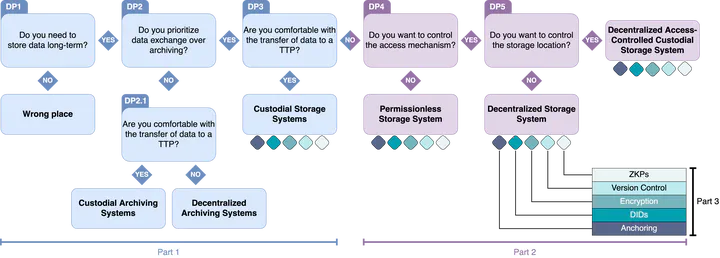Decentralized Data Networks for Lifecycle Management in the Built Environment
May 1, 2025· ,,,,·
0 min read
,,,,·
0 min read
David Bucher
Jens Hunhevicz
Brandon Byers
Meliha Honic
Catherine De Wolf
Daniel Hall
 Decision Framework consisting of three parts with five guiding Decision Points (DPs).
Decision Framework consisting of three parts with five guiding Decision Points (DPs).Abstract
The management of lifecycle data poses significant challenges for the built environment, hindering effective transformation toward important concepts such as a circular economy. Many recent scholars propose blockchain technologies as a solution; however, there is almost no investigation into decentralized data networks, which also offer significant potential for lifecycle data management. This might be due to a lack of clarity in understanding the fundamental characteristics and potential use cases for decentralized data networks. Therefore, this paper combines a comprehensive review with inductive reasoning to classify three functional typologies—immutable, comprehensive, and privacy-centric – of decentralized data networks. Through testing with material passport data, we evaluate the practical implications of these typologies for lifecycle data management in the built environment. The findings highlight that decentralized data networks can improve data sovereignty and interoperability, but their effectiveness depends on use-case-specific trade-offs, such as mutability, access control, and storage location control. To navigate these trade-offs, the paper derives a decision framework that guides practitioners and researchers in selecting the most suitable decentralized data network. These insights contribute to a better understanding of decentralized technologies beyond blockchain and provide actionable recommendations for the future of data management in the built environment.
Type
Publication
Journal of Information Technology in Construction (ITcon)